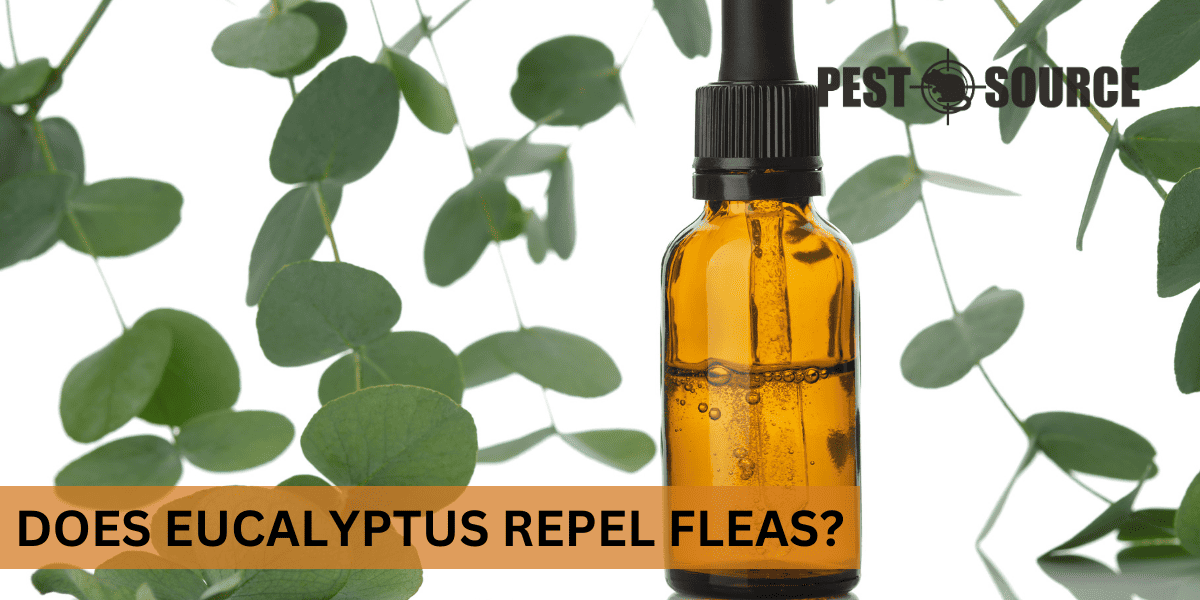Fleas are not only a nuisance to humans and pets, causing discomfort and itchiness, but they can also transmit diseases. As a result, finding reliable methods for controlling and repelling fleas is essential. One natural solution that has gained popularity is eucalyptus and its derivatives, particularly essential oils.
This article will delve into the background and efficiency of eucalyptus and essential oils as flea-repellent options, helping you determine their effectiveness and potential applications in flea control.
POINTS
- Eucalyptus oil, derived from the leaves of the eucalyptus plant, contains compounds like eucalyptol which may have insecticidal and repellent effects against fleas.
- Other essential oils, such as peppermint, lemongrass, cedarwood, and lavender, have also been found to possess potential repellent and insecticidal properties that can be helpful in flea control.
- Factors such as concentration, purity, and method of application can significantly influence the effectiveness of essential oils against fleas, and using multiple oils in combination may yield better results.
- Essential oils can pose risks to pets, especially cats, if not used properly. It is crucial to dilute the oils, follow safety precautions, and consult a veterinarian before using essential oils on or around pets.
- Using essential oils as a flea control method should be combined with other control measures, like diatomaceous earth or flea combing, to maximize their effectiveness in combating flea infestations.
Understanding Eucalyptus and its Properties
What are the general properties of eucalyptus that might affect fleas?
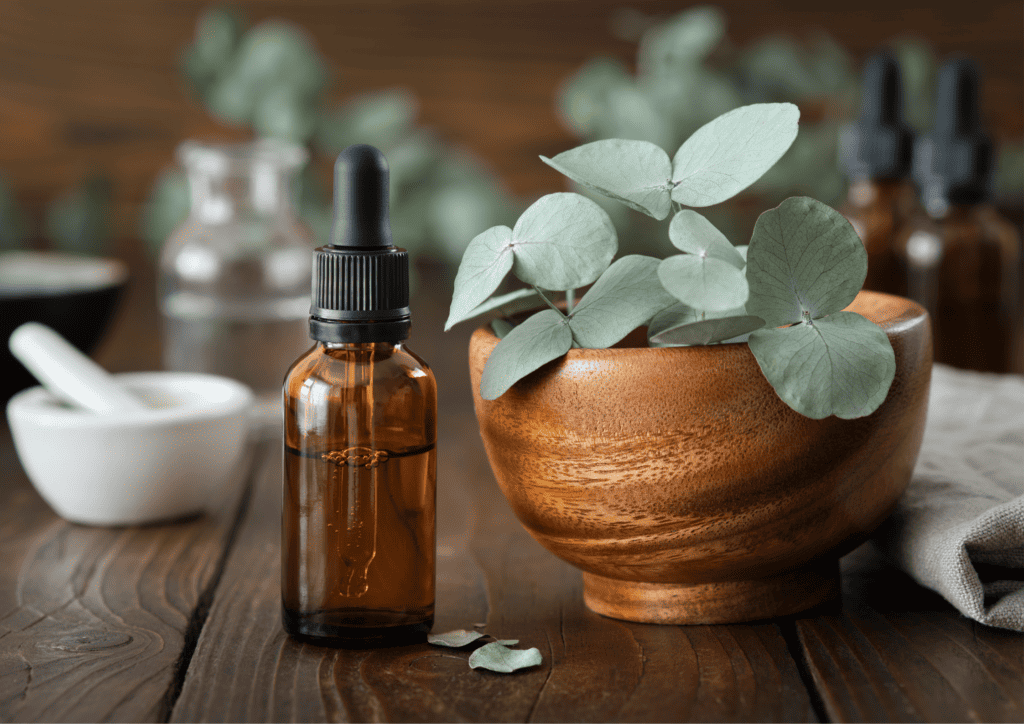
Eucalyptus is a popular plant native to Australia that has been widely used for its medicinal and aromatic properties. Its leaves contain compounds like eucalyptol (also known as cineole), which is believed to have insecticidal and repellent effects against insects such as fleas. Eucalyptus oil, derived from the plant’s leaves, is known to have a strong and distinctive aroma, which may also contribute to its potential flea-repelling capabilities.
How is eucalyptus oil produced and what are its active ingredients?

Eucalyptus oil is produced by steam-distilling the leaves of the eucalyptus plant. The resulting essential oil is made up of several chemical compounds, with eucalyptol (cineole) being the most abundant and active constituent. Other compounds present in the oil include terpenes, aldehydes, and ketones – all of which may contribute to the oil’s insecticidal and repellent properties.
What are the potential effects of eucalyptus on fleas?
Eucalyptus oil has been found to exhibit a range of effects on fleas:
- Eucalyptus oil may repel fleas and inhibit their development.
- Eucalyptol, the main component, can interfere with flea neurotransmitters, causing paralysis and death.
- The strong aroma of eucalyptus oil can disrupt the olfactory senses of fleas, hindering their ability to detect hosts.
Can eucalyptus kill or repel fleas?
While some research has indicated that eucalyptus oil may have repellent and lethal effects on fleas, it’s important to note that results can vary depending on the purity, concentration, and application of the oil. No single solution is universally effective, and eucalyptus oil may only provide a temporary or partial solution against flea infestations.
Are there any other pests that eucalyptus may repel or kill?
Eucalyptus oil has been studied for its potential effects on various pests besides fleas. Its insecticidal and repellent properties have been examined in relation to:
- Mosquitoes
- Ticks
- Flies
- Lice
However, as with fleas, the exact effectiveness of eucalyptus oil against these pests may depend on its quality, formulation, and method of application.
Eucalyptus Oil Specifics
How is eucalyptus oil used for flea control?
Eucalyptus oil can be used in several ways as a natural flea control method. Some common applications include:
| Method | Dilution Ratio | Application Frequency | Precautions |
|---|---|---|---|
| Spray on Pet’s Coat | 1:10 (oil:water) | Once weekly | Avoid face, especially eyes and nose. |
| Flea-Repelling Collar | 1 drop in 1 tsp carrier oil | Apply oil mixture every 2 weeks | Ensure the collar is not too tight; monitor for irritation. |
| Adding to Pet Shampoo | 2-3 drops per oz of shampoo | Use during regular baths | Rinse thoroughly to avoid residue. |
| Spray for Carpets, Furniture, Bedding | 1:20 (oil:water) | Spray lightly every 3-4 days | Test on a small, inconspicuous area first to ensure no staining or damage. |
It’s vital to follow proper dilution guidelines and safety precautions when using eucalyptus oil, as undiluted essential oil can be toxic to pets.
What is the efficacy of eucalyptus oil in killing or repelling fleas?
While some studies have demonstrated the potential effectiveness of eucalyptus oil in repelling or killing fleas, its overall efficacy as a flea control method may be limited. Factors such as the purity and concentration of the oil, the method of application, and the specific flea species in question can have a significant impact on the results.
Moreover, eucalyptus oil may not be able to completely eliminate a flea infestation, as it might not kill flea eggs and larvae. Thus, it should be used in conjunction with other flea control measures for the best results.
Are there specific formulations or products like eucalyptus flea sprays?
There are commercial flea-repellent products containing eucalyptus oil or its primary active component, eucalyptol, which are specifically designed for flea control. These products often come in the form of sprays or shampoos for pets and may contain other essential oils or ingredients to enhance their effectiveness. Always follow the manufacturer’s guidelines and safety precautions when using such products.
Can eucalyptus oil harm pets, such as dogs and cats?
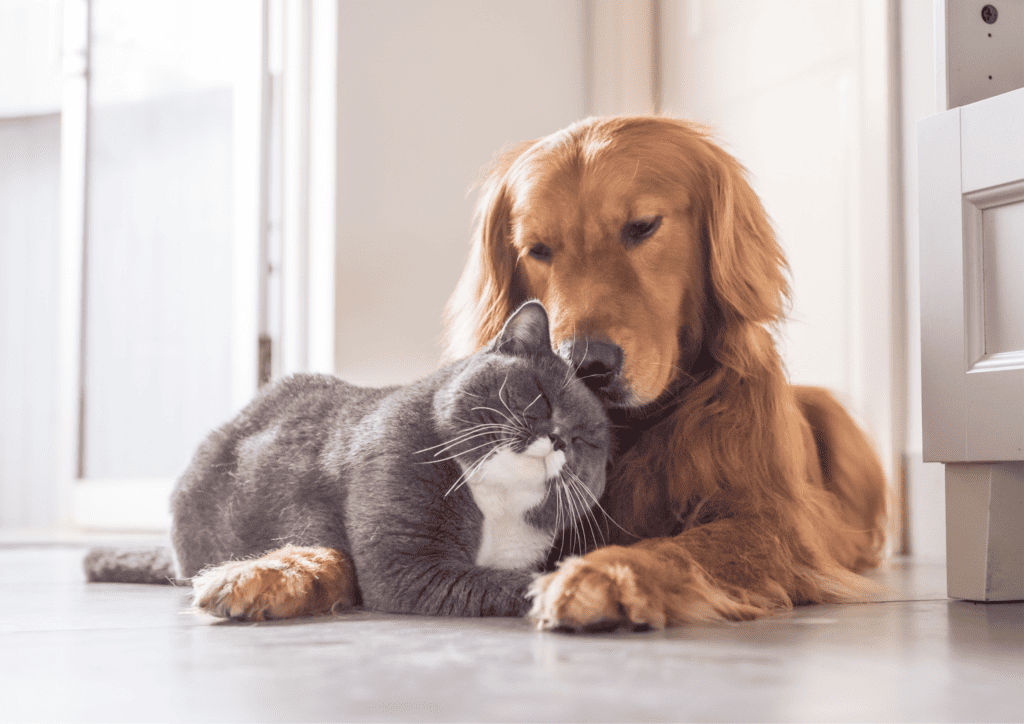
Eucalyptus oil, like many essential oils, can pose risks to pets if not used properly. Cats are particularly sensitive to eucalyptus oil, as they lack certain liver enzymes required to metabolize and excrete the oil’s compounds. This can lead to symptoms like vomiting, drooling, weakness, or even more severe reactions like seizures and liver damage.
Dogs are less sensitive to eucalyptus oil than cats, but caution should still be exercised. Inappropriate use or excessive amounts of the oil can be toxic to dogs, potentially causing symptoms similar to those experienced by cats.
What precautions need to be taken when using eucalyptus oil around pets?
When using eucalyptus oil for flea control around pets, always adhere to the following precautions:
- Dilute the oil with water or a carrier oil according to the manufacturer’s guidelines.
- Avoid applying undiluted essential oil directly to your pet’s skin or coat.
- Test a small area first to ensure your pet does not have an adverse reaction to the oil.
- Keep eucalyptus oil and any products containing it out of reach of pets.
- Monitor your pet closely for any signs of discomfort or adverse reactions and discontinue use immediately if you observe any issues.
For an added layer of safety, consult with your veterinarian before using eucalyptus oil on or around your pets.
Essential Oils and Fleas
How do essential oils in general affect fleas?
Essential oils can have various effects on fleas, depending on the specific oil and its chemical constituents. Some essential oils have been found to exhibit repellent properties, making it difficult for fleas to locate or stay on their hosts. Others may have insecticidal effects, which can kill fleas or inhibit their growth and development. The exact mechanisms of action for essential oils against fleas are not always clear, and factors like concentration, purity, and method of application can influence their overall effectiveness.
Which essential oils are most effective at repelling or killing fleas?
While eucalyptus oil has been widely discussed as a potential flea repellent, other essential oils have also been studied for their effects on fleas. Some of the most promising options include:
| Essential Oil | Repellent Effect | Insecticidal Effect | Notes |
|---|---|---|---|
| Peppermint | Yes | Yes | Menthol in peppermint oil can paralyze and kill fleas. |
| Lemongrass | Yes | Yes | Contains citral and geraniol, both known for repelling and killing fleas. |
| Cedarwood | Yes | Yes | Natural insecticidal properties make it a strong option for flea control. |
| Lavender | Yes | Yes | Known for repelling adult fleas; effectiveness against larvae requires further research. |
It’s important to note that not every essential oil will be equally effective against all flea species, and using multiple oils in combination may provide better results.
How are essential oils used to control fleas on humans, pets, and in various environments (e.g., carpets, furniture)?
Essential oils can be used in a variety of ways to help control fleas in different settings:
- For humans: Dilute essential oils in a carrier oil and apply to skin or clothing to create a flea-repelling barrier.
- For pets: Incorporate diluted essential oils into pet shampoos, sprays, or collars.
- In the environment: Dilute essential oils with water to create a flea repellent spray for carpets, furniture, and pet bedding.
As always, exercise caution and follow proper dilution guidelines when using essential oils for flea control.
What precautions should be taken when using essential oils for flea control?
When using essential oils for flea control, keep the following precautions in mind:
| Precaution | Reason | Recommended Action |
|---|---|---|
| Dilute essential oils properly | Undiluted oils can be toxic or irritating | Follow dilution guidelines specific to each oil |
| Avoid using on pets without vet consultation | Some oils can be harmful, especially to cats | Consult a veterinarian before applying oils to pets |
| Test a small area before full application | To ensure there are no adverse reactions to the oil | Apply a small amount to a limited area and monitor for 24 hours |
| Keep essential oils out of reach of pets and children | To prevent accidental ingestion or contact | Store oils in a secure location |
Adhering to these precautions ensures that essential oils can be a safe part of your strategy for flea control, minimizing risks while maximizing benefits.
The Sensory Aspects of Flea Repellents
Do fleas respond to certain smells?
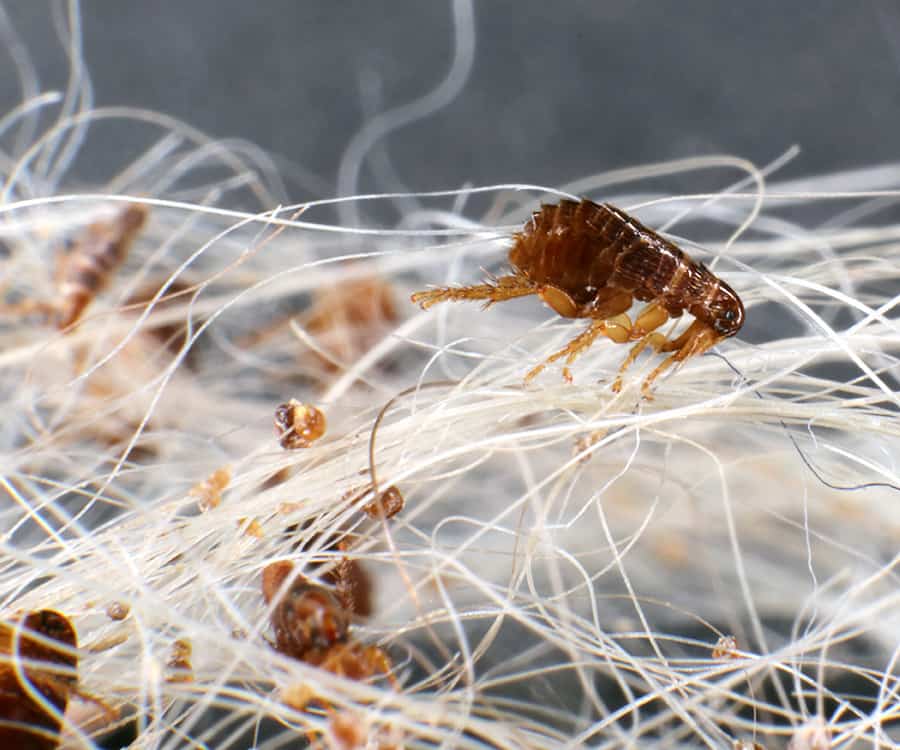
Fleas are known to rely on their sense of smell to help locate their hosts. As a result, certain odors may either attract or repel fleas. Essential oils, like eucalyptus, can create an environment that’s unfavorable to fleas because of their strong aromas, potentially repelling the pests.
What smells do fleas hate or avoid?

Fleas are known to dislike the scents of eucalyptus, peppermint, lemongrass, cedarwood, and lavender oil, among others. These essential oils can potentially be used to create an environment that is less appealing to fleas, though results may vary depending on factors like concentration and application methods.
Can the scents of eucalyptus or other essential oils be leveraged to repel fleas?
The strong, distinctive scents of eucalyptus and other essential oils can indeed be used in an attempt to repel fleas. However, it’s worth noting that scent-based repellents alone may not be enough to completely control flea infestations and should be combined with other methods for the best results.
Comparisons and Alternatives
How does eucalyptus oil compare to other flea repellents or treatments, such as tea tree oil?
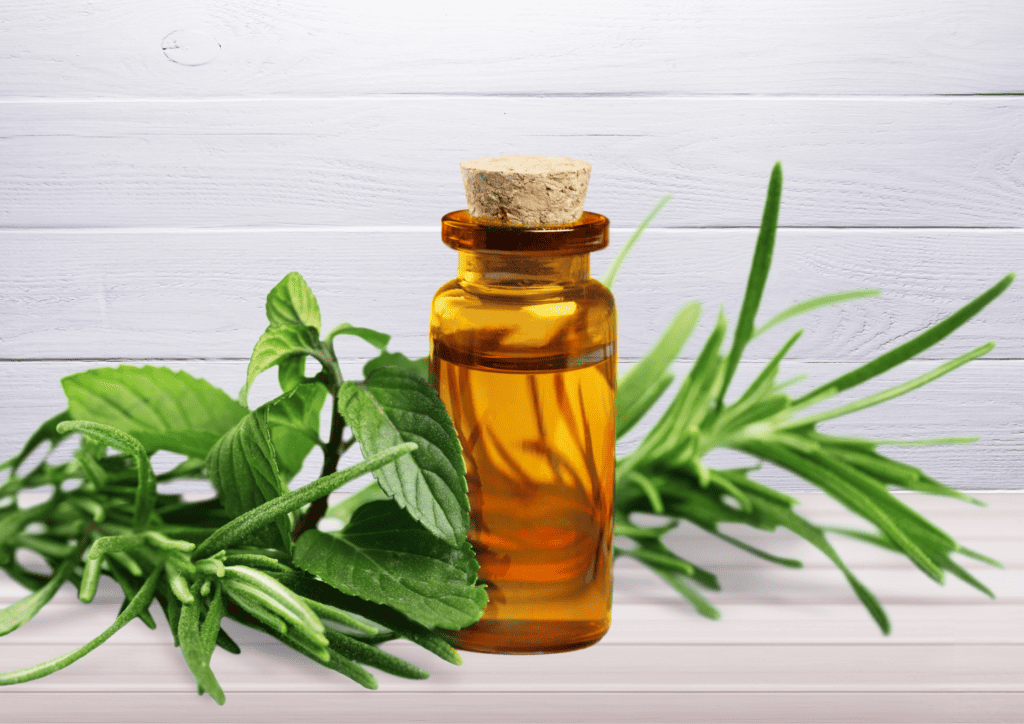
While eucalyptus oil has been studied for its potential flea-repelling properties, other oils like tea tree oil have also been explored for their effectiveness against fleas. However, when it comes to pet safety, eucalyptus oil may present fewer risks compared to tea tree oil, which can be toxic to both cats and dogs if used improperly.
Regardless of the specific oil used, it’s important to remember that essential oils should be combined with other flea control methods and that pet owners should consult with a veterinarian before applying any oils or treatments to their pets.
What other natural remedies or methods are effective at controlling fleas?
In addition to essential oils, there are several natural remedies and methods that can effectively control flea infestations without the use of harsh chemicals. The table below explores various natural options, detailing their effectiveness and application methods.
| Method | Effectiveness | Application Method | Pros | Cons |
|---|---|---|---|---|
| Diatomaceous Earth | High | Sprinkle on carpets, pet bedding, and yard | Non-toxic, long-lasting effect | Dust can be harmful if inhaled |
| Flea Combing | Moderate | Regular combing with a fine-toothed flea comb | Non-toxic, immediate results | Time-consuming, daily effort required |
| Biological Control (Nematodes) | Variable | Apply to damp soil around the home | Targets flea larvae in the environment | Effectiveness depends on specific conditions |
It’s often best to use a combination of methods for the most effective and long-lasting flea control.
Conclusion
Eucalyptus oil and other essential oils can offer a natural way to help repel and control fleas. However, their effectiveness can be limited by factors such as concentration, application methods, and flea species. While they can provide some benefits in flea control, it’s important to use essential oils in conjunction with other pest control methods and to follow proper guidelines and precautions. It’s also crucial to consult with a veterinarian before using any essential oils on pets to ensure safety and effectiveness.

